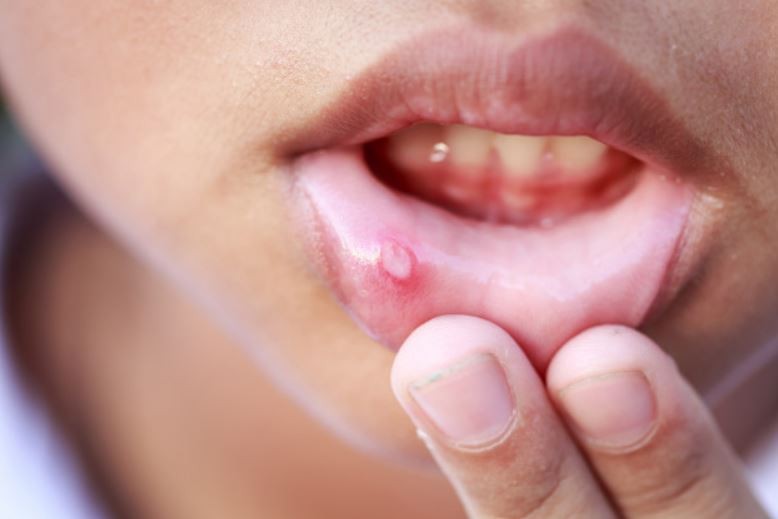How to treat a canker sore?

Mouth ulcers are small ulcerations that form on the oral mucosa. Their origins remain unclear even if many contributing factors are now well known. Fatigue, stress, the consumption of certain hard cheeses (such as Gruyère), certain fruits such as pineapple, melon or nuts (walnuts, hazelnuts, coconut are all potential factors in formation of canker sores.
Certain drug treatments (aspirins, psychotropic drugs) or immune diseases (HIV, etc.) cause the appearance of canker sores. Mouth ulcers most often disappear within 8 days without treatment. But when they occur recurrently, it is best to consult your dentist. He will be able to prescribe a gel or ointment directly applicable to the canker sore, containing in particular an anesthetic to relieve the pain. A therapeutic mouthwash can also be effective. Finally, treatment and prevention also involve maintaining good oral hygiene and regular follow-up with your dentist, particularly for scaling.
Are local treatments effective against canker sores?
Mouth ulcers correspond to small oral ulcerations, most often painful. Using a cream or gel to combat canker sores can be effective. The active molecules in these products aim to relieve pain, reduce inflammation and protect the erosive wound, thus avoiding secondary infection. They allow faster healing. The primary objective remains to relieve pain while healing takes place. Some of these products contain anti-inflammatories or a local anesthetic.
They should only be used for a few days consecutively and under medical supervision. Indeed, the antiseptic substances they contain can destabilize the oral flora over long periods. As for “refreshing” mouthwashes or those used to combat dental plaque, they have no benefit in the treatment of canker sores. (source: ufsbd

.png)